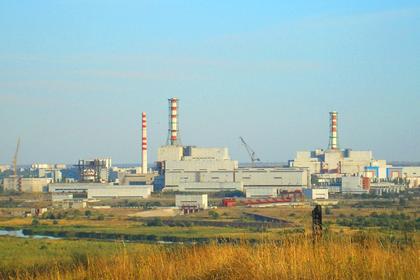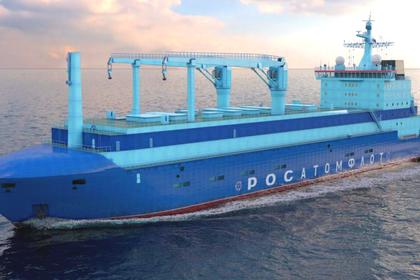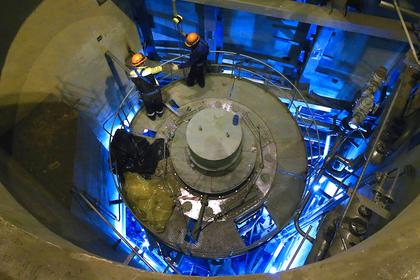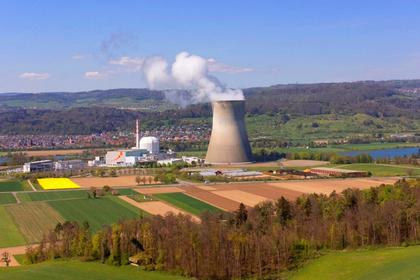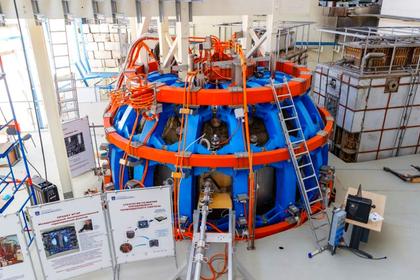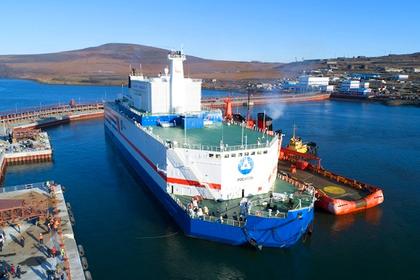
UKRAINE NEED RUSSIAN NUCLEAR
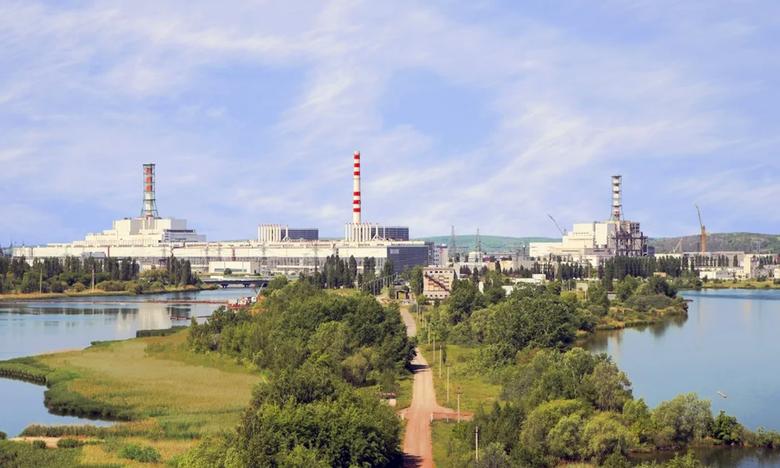
N- August 13, 2024 - On 6 August, Ukrainian forces launched a massive attack on Russia’s Kursk region. It is the general view of most commentators in the Russian media that the key objective was to capture the Kursk NPP, some100 kilometres from the border.
Kursk NPP is located four kilometres from the operators’ city of Kurchatov and 40 kilometres from Kursk. The number of employees of the station is estimated at more than 5,000. The NPP comprises four ageing RBMK-1000 units, two of which are now closed down for decommissioning. In addition, two new VVER-TOI reactor units (Kursk-II) are under construction at the site, the first of which is nearing completion.
The day after the Ukrainian invasion, security measures were strengthened at the plant. The National Guard (Rosgvardia) said on its Telegram page that “as part of ensuring the safety of a particularly important protected facility, Rosgvardiya … in cooperation with the Ministry of Defence of the Russian Federation and the Border Guard Service of the FSB of Russia, have increased their forces and means to effectively solve the tasks of combating sabotage and reconnaissance groups of the Armed Forces of Ukraine in the Kursk and Belgorod regions.”
Although the ground troops were prevented from reaching the plant, on 8 August, fragments and remnants of downed missiles were found at the plant, including in the area of the radioactive waste processing complex. The sites were cordoned off, and operational services are examining fragments. The following day, a transformer substation was disabled by a drone attack, leaving Kurchatov without electricity for several hours. The situation was reported to the International Atomic Energy Agency (IAEA) by the Permanent Mission of the Russian Federation to International organisations in Vienna.
Rosatom Director General Alexey Likhachev initiated a telephone conversation with IAEA Director General Rafael Grossi on 9 August to discuss the situation around the Kursk NPP. Likhachev said that “the actions of the armed forces of Ukraine pose a direct threat not only to the Kursk NPP, but also to the development of the entire world’s nuclear power industry”.
Grossi, in turn, “stressed the importance of observing the principles of nuclear safety and, in particular, ensuring the physical integrity of the nuclear power plant”.
“At the moment, there is a real danger of strikes and provocations by the Ukrainian Armed Forces at the nuclear power plant,” Rosatom said in a statement. The current situation not only negatively affects the normal operation of the Kursk NPP, but also directly compromises the postulates of nuclear safety and nuclear security formulated by the head of the IAEA in 2022, and thereby undermines confidence in the nuclear energy industry as a whole.”
Grossi issued a statement the same day reminding all parties of the seven indispensable pillars for ensuring nuclear safety and security during an armed conflict and the five concrete principles to help to ensure nuclear safety and security which were established for the Zaporizhia NPP “which are equally applicable in this situation”. These include, among others, the imperative to ensure the physical integrity of a NPP. “This is valid irrespective of where an NPP is situated,” Grossi noted.
“At this juncture, I would like to appeal to all sides to exercise maximum restraint in order to avoid a nuclear accident with the potential for serious radiological consequences. I am personally in contact with the relevant authorities of both countries and will continue to be seized of the matter. I will continue to update the international community as appropriate.”
Rosatom reported on its Telegram channel that the number of personnel had been temporarily reduced at the Kursk NPP site. “It is specified that this decision was made in connection with the introduction of a federal emergency mode in the region. However, the specialists remaining at the facility are working in accordance with the schedule.” According to Russian media the staff reduction mostly affected those working at the Kursk-II construction site. However, Rosatom noted that “all systems that ensure the construction of power units with VVER-TOI reactors are functioning normally” and that Kursk units 3&4 are operating normally while closed units 1&2 were operating in the “no generation” mode”.
Local media reported that all entrances to the Kursk NPP were blocked and that at Kursk-II everything had been shut down and the builders had left the facility. Nuclear experts commented, however, that it was not a critical problem and “in the worst case scenario, the launch of the first power unit, currently planned for 2025, will be postponed for some time”.
The head of Kurchatov, Igor Korpunkov, wrote in his Telegram channel: “Several tens of kilometres from the borders of our city fighting is taking place. The situation is tense, and an emergency situation is in effect. Nevertheless, all services, enterprises, including the city administration, are operating normally. ” He urged citizens not to panic. Rosatom reaffirmed on 10 August that the NPP was operating normally and that background radiation at the site and in the city was within natural values.
Kommersant talked to Valentin Gibalov, an independent nuclear energy expert specialising in the development and production of dosimetric equipment, about plant safety and how it compares with the situation at the Zaporizhia NPP. “A significant difference between the RBMK and VVER-1000 is the absence of the inner containment a thick reinforced concrete shell designed to hold steam inside the reactor room in case of depressurisation. RBMK does not have such a design. This increases the vulnerability of nuclear power plants with this type of reactor to accidental or non-accidental hits of projectiles, rockets, bombs, and the like, which can lead to a radiation accident with the release of radioactive substances.”
However, he added that even an unprotected RBMK is a massive and large-scale industrial structure, and that to cause damage resulting in a radiation accident, it would be necessary to use the heaviest types of weapons. “In addition, unlike Zaporizhia NPP, Kursk NPP is highly likely covered by a powerful air defence.”
Maxim Shingarkin, a former State Duma deputy and specialist in nuclear counter-terrorism, told MK the target of the Ukrainian Armed Forces that entered the Kursk region was certainly the Kursk NPP. He said although that plan was thwarted, there was still a threat of small sabotage groups attacking the NPP. “It is obvious that Ukraine is seeking support from the international community to regain control of the Zaporizhia NPP (ZNPP)…. The Russian Federation is not going to concede. The only way to get the Zaporizhia NPP back is to create such a critical situation where the Russian Federation will be forced to exchange something important, for example, the Kursk NPP, for the Zaporizhia NPP.”
Political analyst Sergey Markov similarly said Ukrainian President Volodymyr Zelensky “allegedly gave an order” to seize the Kursk NPP in order to exchange it for the Zaporizhia NPP. Kiev allegedly “wants to seize part of Russia’s territory in the Kursk and Belgorod regions,” and during the subsequent negotiations, “give them up in exchange for Russia’s withdrawal from the Kharkiv region and the ZNPP” he noted. Vladimir Prokhvatilov, a senior researcher at the Academy of Military Sciences, in an interview with the radio station Moscow Says, noted: “There is information that UN Secretary-General Guterres knew that the Ukrainian Armed Forces were preparing an attack on the Kursk region, and prepared documents on the exchange of the Zaporizhia NPP for the Kursk one.”
On 10 August, Russia’s Foreign Ministry said a fake video had been posted on the Internet by the Ukrainian special services, in which Foreign Ministry spokeswoman Maria Zakharova, allegedly said Russia would consider the transfer of the ZNPP to Kiev in exchange for Ukraine’s withdrawal from the Kursk region.
“The Ukrainian special services, with the assistance of Western curators, continue to actively use deepfake and other artificial intelligence technologies to spread false information about the situation in the border regions of our country,” the Foreign Ministry said, adding that the video was a forgery. “This is a deepfake hastily put together based on a video recording of Maria Zakharova’s briefing on 18 July, 2024. We emphasise that Maria Zakharova has never uttered anything like this. The real comments of the official representative of the Russian Foreign Ministry are available in her Telegram channel and on the official resources of the ministry.”
-----
Earlier:
